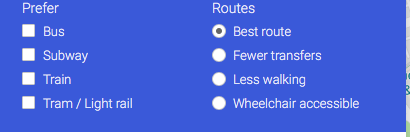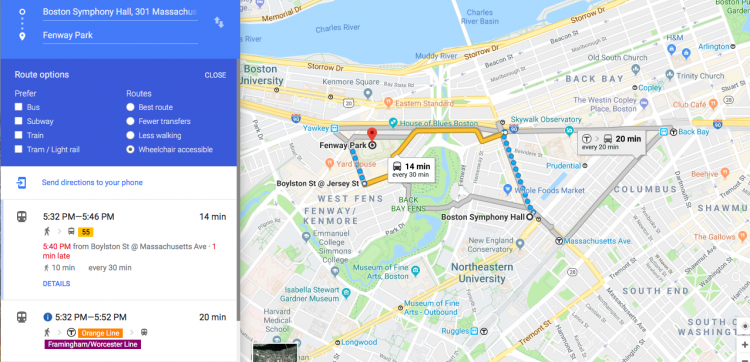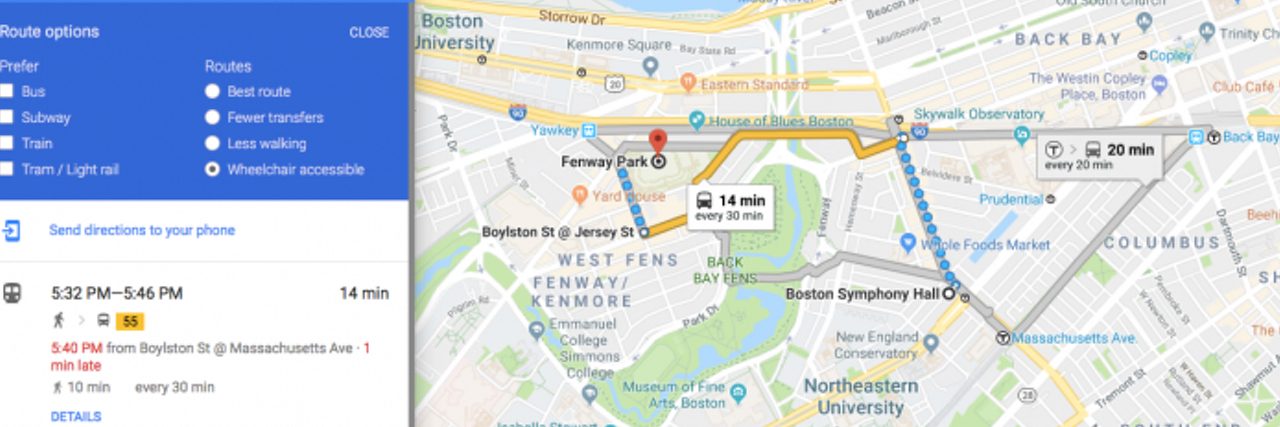Google Adds Wheelchair Accessible Transportation Routes in Six Cities
On Thursday, Google Maps announced a new feature that will help people who use mobility devices find accessible ways to travel. With this update, users in Boston, London, Mexico City, New York, Sydney, and Tokyo can access wheelchair accessible routes through Google Maps.
Ryo Akasaka, a product manager at Google, told The Mighty that in choosing locations, “We went with the cities that were interested in partnering with us first and providing accessibility information.”
Local transit authorities and people with disabilities worked with Google to crowdsource accessibility information about specific places. This includes not only written information but updated pictures on Street View so people can see what their journey will look like beforehand.
According to Google, the new features can be accessed by doing the following:
To access the ‘wheelchair accessible’ routes, type your desired destination into Google Maps. Tap ‘Directions’ then select the public transportation icon. Then tap ‘Options’ and under the Routes section, you’ll find ‘wheelchair accessible’ as a new route type. When you select this option, Google Maps will show you a list of possible routes that take mobility needs into consideration.


While wheelchair accessible routes are currently only available in six cities, Google said it plans to expand its service to other locations.
Google is not the first company to show how accessible locations are, although it is the largest. In May, Ellen DeGeneres gave 12-year-old Alex Knoll, $25,000 on to develop Ability App, similarly designed to help people with disabilities identify accessible locations. Beyond Knoll’s app, AccessNow — created by Maayan Ziv, who lives with muscular dystrophy — as well as AXSmap — created by Jason DeSilva, a filmmaker with multiple sclerosis — also lets users view how accessible their destination is.
“This is just the beginning for us,”Akasaka said. “There’s so much more we need to do to make the feature experience even better–, and hopefully many others will be equally motivated to make the world a more accessible space for everyone.”
The post has been updated to include quotes from Ryo Akasaka, a product manager at Google.

